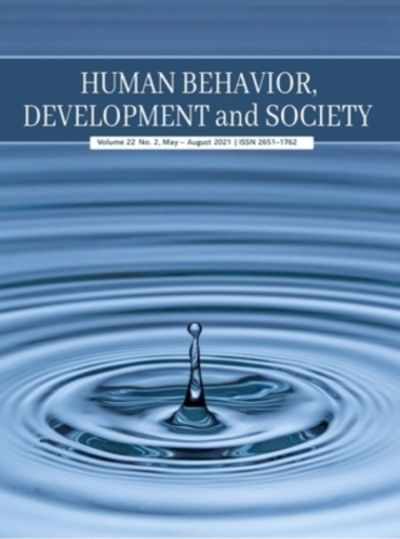Analysis of the Relationship between Emotional Intelligence and Group Cohesion in a Filipino Emergency Response Team
Main Article Content
Abstract
The objective of this study was to ascertain the relationship between emotional intelligence and group cohesion among emergency response team members. The hypothesis was that emotional intelligence improves teamwork by increasing the team's cohesiveness. The research methodology used in this study was quantitative (descriptive, correlational, and comparative). A psychometric instrument was used as a survey tool to elicit information about the research participants' characteristics and perceptions. The data were analyzed with Pearson Product-Moment Correlation Coefficient to determine the relationship between emotional intelligence and group cohesion. The findings indicated that emergency response teams exhibit emotionally intelligent behaviors at work, except for intuition, emotion, and motivation. On the other hand, it was discovered that their level of group cohesion is relatively high. The group demonstrated collective pride, task commitment, and interpersonal attraction. The analysis revealed that emotional intelligence and group cohesion had a moderately significant relationship with emotion being a strongly correlated component of emotional intelligence. Thus, the claim that emotional intelligence promotes group cohesion was supported.
Article Details

This work is licensed under a Creative Commons Attribution-NonCommercial-NoDerivatives 4.0 International License.
Copyright: Asia-Pacific International University reserve exclusive rights to publish, reproduce and distribute the manuscript and all contents therein.
References
Adams, A. C. (2010). The relationship between emotional intelligence and group cohesiveness in interactive classroom groups. Iowa State University.
Apaydin, C., & Anafarta A. (2012). Factorial validation of the seven-component model of the work profile questionnaire emotional intelligence (WPQei) in a Turkish educational setting. Journal of Instructional Psychology, 39(3/4), 159–170.
Arfara, C., & Samanta, I. (2016). The impact of emotional intelligence on improving team-working: The case of Public Sector (National Centre for Public Administration and Local Government - N.C.P.A.L.G.). Procedia – Social and Behavioral Sciences, 230, 167–175.
Beal, D. J., Cohen, R. R., Burke, M. J., & McLendon, C. L. (2003). Cohesion and performance in groups: A meta-analytic clarification of construct relations. Journal of Applied Psychology, 88(6), 989–1004.
Cameron, A. (2004). Emotional Personality Team Roles. Work profile questionnaire–Emotional intelligence (WPQei) user’s guide. The Test Agency Limited.
Carron, A. V. (1980). Social psychology of sport. Movement Publications.
Carron, A. V., Widmeyer, W. N., & Brawley, L. R. (1985). The development of an instrument to assess cohesion in sport teams: The Group Environment Questionnaire. Journal of Sport and Exercise Psychology, 7(3), 244–266.
Carron, A.V., Colman, M.M., Wheeler, J., & Stevens, D. (2002). Cohesion and performance in sport: A meta-analysis. Journal of Sport and Exercise Psychology, 24(2), 168–188.
Chiocchio, F., & Essiembre, H. (2009). Cohesion and performance: A meta-analytic review of disparities between project teams, production teams, and service teams. Small Group Research, 40(4), 382–420.
Church, T. A. (1986). Filipino personality: A review of research and writings. (Monograph Series No.6). De La Salle University Press.
Cross, B., & Travaglione, A. (2003). The untold story: Is the entrepreneur of the 21st century defined by emotional intelligence? The International Journal of Organizational Analysis, 11(3), 221–228.
Druskat, V.U., & Wolff, S.B. (2001). Building the emotional intelligence of groups. Harvard Business Review, 79(3), 80–91.
Gantt, S.P., & Agazarian, Y. M. (2004). Systems-centered emotional intelligence: Beyond individual systems to organizational systems. Organizational Analysis, 12(2), 147–169.
Goleman, D. (1995). Emotional intelligence: Why it can matter more than IQ. Bantam Books.
Goleman, D. (1998). Working with emotional intelligence. Bantam Books.
Goleman, D. (2001). Working with emotional intelligence. Bloomsbury Publishing Plc. (Original work published 1998). https://archive.org/details/workingwithemoti0000gole
Goleman, D. (2002). Working with emotional intelligence (D. Goleman, Narr.) [Audiobook]. Audio Renaissance. (Original work published 1998). https://www.torontopubliclibrary.ca/detail.jsp?Entt=RDM129057&R=129057
Gratton, L., & Erickson, T.J. (2007). Eight ways to build collaborative teams. Harvard Business Review, 85(11), 100–109.
Lewin, K. (1935). Psycho-sociological problems of a minority group. Character & Personality: A Quarterly for Psychodiagnostic & Allied Studies, 3, 175–187.
Mayer, J. D., & Salovey, P. (1997). What is emotional intelligence? In P. Salovey & D. J. Sluyter (Eds.), Emotional development and emotional intelligence: Educational implications (pp. 3–34). Basic Books.
Moore, A., & Mamiseishvili, K. (2012). Examining the relationship between emotional intelligence and group cohesion. Journal of Education for Business, 87(5), 296–302.
Prati, L. M., Douglas, C., Ferris, G. R., Ammeter, A.P., & Bucley, M. R. (2003). Emotional intelligence, leadership effectiveness, and team outcomes. The International Journal of Organizational Analysis, 11(1), 21–40.
Salovey, P., Bedell, B., Detweiler, J. B., Mayer, J. D. (2000). Current directions in emotional intelligence research. In M. Lewis & J. M. Haviland-Jones (Eds.), Handbook of emotions (pp. 504–520). Guilford.
Salovey, P., & Mayer, J. D. (1990). Emotional intelligence. Imagination, Cognition and Personality, 9(30), 185–211.
Treadwell, T., Laverture, N., Kumar, V.K., & Veeraraghavan, V. (2001). The group cohesion scale-revised: Reliability and validity. International Journal of Action Methods: Psychodrama, Skill Training, and Role Playing, 54(1), 3–12.
Wolff, S. B., Druskat, V. U., Koman, E. S., & Messer, T. E. (2006). The link between group emotional competence and group effectiveness. In V. U. Druskat, F. Sala, & G. Mount (Eds.), Linking emotional intelligence and performance at work: Current research evidence with individuals and groups (pp. 223–244). Lawrence Erlbaum Associates.


